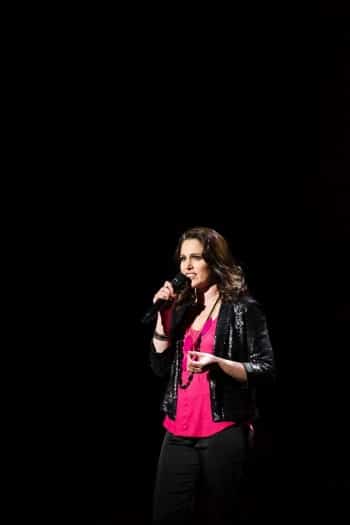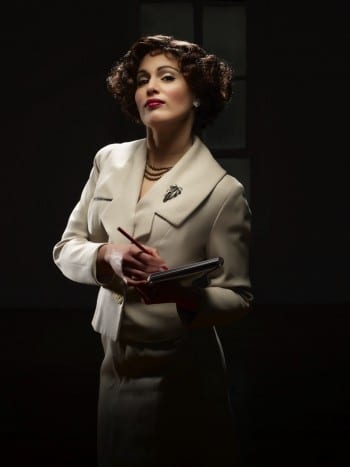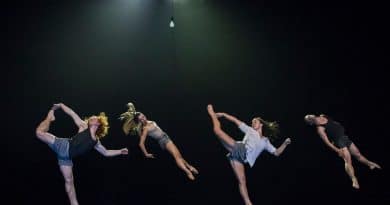Dealing with the inevitability of unemployment in the Arts: Amanda Harrison with Rachel Cole
Rachel Cole sat down with Amanda Harrison in this latest Stage Door Shrink session. Get comfy and settle in for an incredibly interesting and informative read.
A note from Rachi…

Matilda recently transferred to Melbourne, so I had to set up a Wi-Fi network at home, which my flat mate and I named RichandSkinny. (It’s good to be reminded of what we aspire to, every time we watch The Newsroom on the lappy.) It also has the double win of making our neighbours – who call us ‘the thespians’ – roll their eyes at our blatantly shallow values. Unfortunately, given the insecure nature of employment in the arts, it’s much more likely you’ll be poor and skinny, living on Oats for breakfast and dreams for dinner.
When you hit a period of unemployment as an artist (and you will) you have two options: wallow in self pity or preemptively prepare yourself financially and psychologically for this difficult season.
Unemployment is destabilising for anyone. The uncertainty and lack of control tend to lead to feelings of helplessness. Humans have a need to feel useful, to contribute, to connect and to grow. We function best if we work and rest in good measure. If we work too much or not enough, we start to spiral.
The Arts is a field where poor mental health is already a problem due to: insomnia, irregular work hours, high consumption of drugs and alcohol etc. A period of unemployment and financial stress really is the fly in our $7 litre of Chardonnay.
Amanda Harrison has been a staple on the Australian stage for the last 24 years. Since leaving WAAPA 6 weeks into the BA (Musical Theatre), to take a role in the original Australian production of Sunset Boulevard, she originated the role of Elphaba in Wicked’s Australian premiere season. She was also in the original cast of We Will Rock You on the West End. Other credits include: Mamma Mia!, The Boy from Oz, Aspects of Love, Les Mis, Miss Saigon and An Officer and a Gentlemen. She is raising 2 children with her husband Scott and is currently working towards a Bachelor of Arts. She is also preparing for the upcoming concert “Witches” at the Sydney Opera House with the Sydney Symphony Orchestra. After her first show, Aspects of Love, Amanda didn’t book another for 4 years. Here is her experience coupled with the psychological research on dealing with periods of unemployment.
Be realistic from day 1
“You can originate a huge lead role, and then be out of work for years. In Australia there just isn’t as much work as Broadway or the West End.”
The story we like to believe is a constant progression to the top – from ensemble, to cover, to lead, to glory and then you stay there. That is simply not true. If you understand from the outset that this is the case, you’ll be less surprised and disappointed when it happens.
Be smart with your money – budget

The main reason unemployment is stressful is the lack of income. If you are smart with your money when you are employed, the stress is significantly lowered in unemployment because you have a nest egg/buffer. “In 2014, my husband and I were both unemployed, and if we didn’t have a nest egg, it would have been 10x as stressful.”
“When I was starting out, I knew where every cent was going- I would put away 20$ a week for car insurance, so that when it was due, it didn’t impact on my budget or savings. Store up in the good times and you will always be prepared for a time of unemployment.”
Buy Property
“If you have the opportunity to, buy property. It not only gives you a goal to save for, or pay off, it makes you more careful with your money.”
Psychologically, it gives you the stability of a ‘home’- when we’re used to living out of a suitcase.
“It also gets you into the property market, which becomes more difficult the longer you leave it. If you put a tenant in it, the shortfall might only be $50-100 you have to pay a week.”
Diversify your skill set
Make yourself more employable by diversifying your skill set. Those performers who have managed to diversify their skills into TV, film etc., have more opportunity to work.
“In musicals, there are very few roles for women in their 40s – Paula in An Officer and a Gentleman was probably the last Ingénue I’ll play, yet at the moment I’m too young to play next bracket up.”
Take part-time work between shows
“Fortunately, I haven’t had to supplement my income since I was about 30, however earlier in my career, I used to take work in a sandwich shop and a record shop between shows, or teach to alleviate the financial pressure.”
Take any part time work- whatever it takes to alleviate your financial stress. This will take your mind off not working, and give you a much-needed income.
Expand your identity
If your sole personal identity is as a performer, when that’s not happening you will feel significantly lost.
“These days I identify as a performer, but also as a wife and mother and that helps with feeling down when I’m not working. I wouldn’t trade those parts of my life for anything. Being a performer makes me happy, and raising 2 little humans makes me happy.”
Therefore, spend time cultivating those other parts of your life so you still feel a sense of self between gigs.
Don’t self medicate
“It’s not really in my personality to buy alcohol or cigarettes – I’m too cheap for that – a few glasses of wine and I couldn’t be bothered to bathe my kids!”
The recent report from Entertainment Assist found that many performers self medicate in times of unemployment which can lead to very negative cycles of behaviour and thinking. If you’re bored, write your own work. If you’re down, do some exercise.
Connect with older artists

Remember there are hundreds of performers who have gone through it all before, who are ready and willing to offer a wealth of information, coping strategies, wisdom and advice.
“I’ve had many mentors and role models throughout my career. My first show, Aspects of Love, at 18, was my training ground. A degree won’t teach you how to survive financially or act socially. I learnt from Peter Cousens, Margi de Ferranti, Rodney Dobson etc., who have been in the business 10 years longer than me.”
If you don’t love it, don’t do it
For some people the negatives of our industry outweigh the positives. Some people leave the industry because they can’t deal with knockbacks, or insecurities, or periods of unemployment. This is a game for the mentally strong.
“If you ever stop loving it, stop doing it. If there is every anything you think you can do better than perform, do that!! I.e. if you’re better at maths- be a maths teacher. If you don’t love performing, from your head to your toes, the scarifies are just too great!!”
Stabilise yourself with external relationships
“Performing can be a very lonely business – touring, being away from friends and family. When you’re on a show your world becomes very small, but remind yourself this community won’t last. You will make 1-2 solid friends from each show, and the rest will fall away. I am so grateful for my relationship, marriage and children.”




So an unemployed actor has two choices; mentally suck it up or commit suicide. This comment is incredibly insensitive and disgusting. Suicide isn’t a joke, and especially in a field where depression and anxiety run high we should be offering actual guidance and counseling rather than stupid Bunnings jokes.
Hi D,
This was written by our psychologist with tongue planted firmly in her cheek and we do already have a link to the Entertainment Assist website in the piece however, we have amended the article to remove the above mentioned comment, as we would hate to cause anyone further distress.
AussieTheatre.com Team